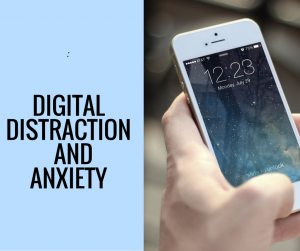Reduce Anxiety With Hypnotherapy in Clifton
March 2018
Hypnotherapy in Clifton for Digital Anxiety
There’s no denying that smartphones and technology in general have made life a lot easier in some ways. It can also pave the way for stress, anxiety and insomnia.
Research has suggested that the average person checks their smartphone up to 10,000 times per year – which works out at around 28 times per day.
In this post I’m going to talk about the link between anxiety and digital distraction, and share some tips on how you can reduce your over reliance on technology.
Why Technology Can Cause Anxiety and Insomnia
A study by Anxiety UK found that regularly using technology increased anxiety, especially with regards to social networking. The behaviour of many of the participants became more negative and involved comparing themselves unfavourably to other people and finding it hard to switch off and relax. And if they couldn’t get online to check emails or social media, almost half of the the respondents experienced a spike in their anxiety levels.
The study concluded that people who are prone to anxiety can find that technology acts as a catalyst that results in their anxiety becoming overwhelming.
One of the reasons that technology can become addictive is the Fear of Missing Out (FOMO) when you’re not online.
Another factor is why we find it so hard to step back from technology. Researchers have suggested that we get a surge in dopamine levels every time we get a notification. Dopamine is linked to rewards and even addiction, especially if we expect the message to give us pleasure.
“Blue light” from technology is another issue associated with technology and is linked to sleep problems in particular. It reduces melatonin levels, which means it’s harder to get to sleep and stay asleep causing insomnia.
Advice from a Hypnotherapist in Clifton
Here are some of my tips for reducing digital anxiety:
Turn off notifications: Most of the time, you check your phone because it pinged. If you set notifications to silent, you might still feel obliged to check “just in case”, especially to begin with but this is likely to happen less often because your attention isn’t being drawn to your phone whenever a notification sounds.
Check in every so often: If you can’t shut yourself off from your devices altogether to begin with, wean yourself off them bit by bit instead. Set an alarm to go off every 15 minutes and give yourself an opportunity to check in online for a brief minute or two each time it goes off. The idea is that you can gradually get used to going longer between check ins until you feel able to go up to an hour or two.
Filter your emails: One of the biggest causes of digital distraction is the number of emails that come through in the average day and the compulsion to check them as soon as a notification pings. Setting up your emails to filter only the most important emails directly to you and arranging for the rest to go into folders to be viewed later can significantly reduce the amount of notifications you receive. You can then set time aside to view the less important emails rather than feeling compelled to look at them there and then.
Limit “blue light”: With “blue light” being a problem for sleep, you don’t want to have too many devices in your bedroom or be active on them at the wrong time. Switching off devices at least an hour before bedtime limits the amount of “blue light” that you’re exposed to just before you go to bed. “Blue light” can affect the quality of your sleep, which can increase anxiety and encourage low mood – especially if you’re prone to worrying and negative thoughts. If you’re not currently affected by anxiety, insomnia can make you more likely to develop it.
Try a digital detox: A short term digital detox can have a lot of benefits for your emotional wellbeing, including helping you to concentrate better, sleep better and be less stressed. Doing this for too long may not be that realistic if you need to stay connected for work but if you can do a digital detox for even 24 hours, it can help your mind to switch off. Even a couple of hours of digital detoxing on a regular basis can be great for your mental health.
Hypnotherapy for Anxiety Clifton
If this advice doesn’t help to reduce digital distraction, hypnotherapy could help.
Hypnotherapy has a great success rate in treating stress and anxiety and can also help to break the habit of checking devices all the time.
It can help you to get to the bottom of why you check your devices so much and provide tools and solutions to deal with the trigger(s) in different ways. You may not be consciously aware of what is behind it but emotions can often play a bigger role than you think.
Take the first step towards reducing technology-related stress and anxiety by contacting me on 07915 093588 or send me a message on the Contact Form.
Book now
Call now to book a consultation!
07915 093588
Reviews
[tprac_reviews campaign="22" summary_link="/testimonials/"]Contact
Helen Rogers Hypnotherapy
30 Westbrook Road
Weston Super Mare
BS22 8JX
07915 093588
helen@helenrogers.co.uk



